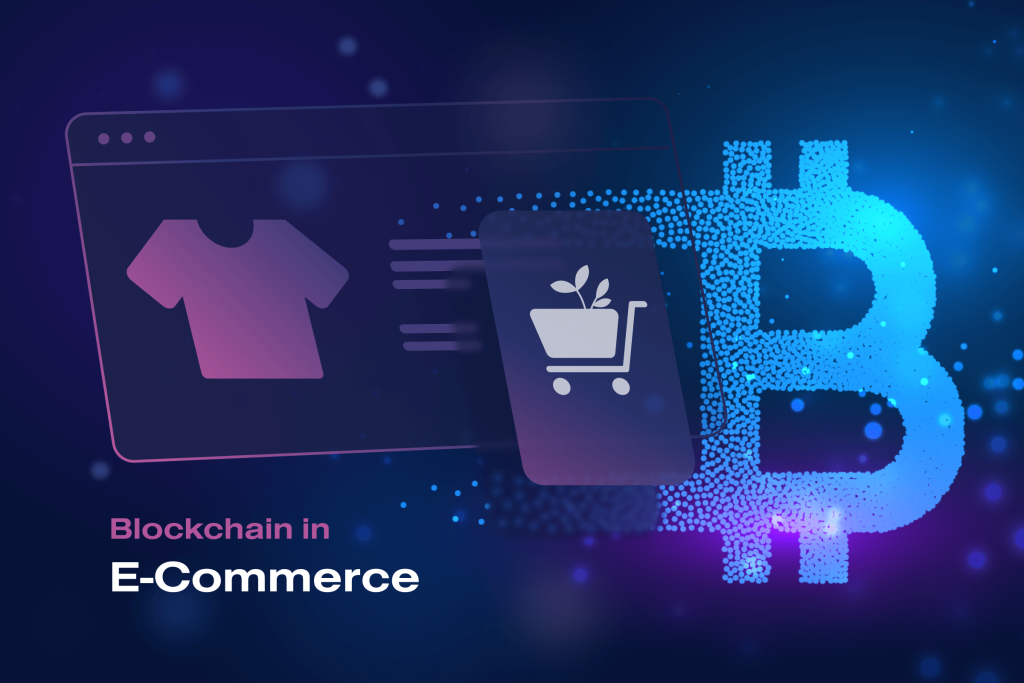In the rapidly evolving landscape of eCommerce, the imperative of transparency and trust has never been more pronounced. As online transactions become increasingly prevalent, concerns surrounding data security and authenticity loom large. Blockchain technology emerges as a beacon of hope, offering a robust framework that can potentially revolutionize the trust dynamics in digital commerce. By leveraging the inherent features of blockchain, such as decentralization and immutability, eCommerce platforms can pave the way for enhanced security and transparency in transactions. The potential implications of blockchain in fostering trust within eCommerce are vast and warrant a closer examination of its transformative capabilities.
Understanding Blockchain Security in eCommerce
When it comes to eCommerce security, understanding the key features of blockchain is essential. Blockchain’s decentralized nature and immutability play a crucial role in enhancing security measures for online transactions. By exploring how blockchain mitigates common risks in eCommerce, businesses can better grasp the potential of this technology in securing their operations.
Key Features of Blockchain That Enhance Security
Blockchain technology’s key features play a crucial role in enhancing security within the realm of eCommerce, providing a foundation for trust and transparency in online transactions. The decentralized nature of blockchain security ensures that data stored in the blockchain database is resistant to tampering and unauthorized alterations. Additionally, blockchain analysis tools enable eCommerce platforms to track and verify transactions, enhancing the overall security of the system. The integration of eCommerce crypto payments further fortifies security by reducing the risks associated with traditional payment methods. Moreover, the transparency inherent in blockchain technology allows for real-time monitoring of transactions, creating a more secure environment for all parties involved in online commerce.
How Blockchain Mitigates Common eCommerce Risks
Blockchain technology plays a crucial role in mitigating common eCommerce risks by offering immutable transactions that significantly reduce the likelihood of fraud. Additionally, blockchain enhances data privacy and user anonymity, providing a secure environment for online transactions. These features empower eCommerce platforms to build trust with customers and establish a more transparent and secure digital marketplace.
Preventing Fraud with Immutable Transactions
Immutable transactions play a pivotal role in bolstering security measures within the realm of eCommerce, offering a robust defense against fraudulent activities.
- Increased Transparency: Every transaction is recorded and cannot be altered.
- Enhanced Security: Fraudulent activities are easily detectable.
- Trust Building: Customers feel more confident in the integrity of transactions.
- Streamlined Processes: Blockchain simplifies verification and auditing procedures.
Enhancing Data Privacy and User Anonymity
By harnessing advanced cryptographic techniques, eCommerce platforms can significantly enhance data privacy and user anonymity, thereby fortifying security measures in online transactions. Blockchain technology facilitates this by ensuring that sensitive information is encrypted and securely stored across a decentralized network. This decentralized nature of blockchain not only reduces the risk of data breaches but also provides users with a higher level of privacy and confidentiality.

The Role of Blockchain Analysis in Enhancing eCommerce Trust
As eCommerce transactions grow in complexity and volume, the need for robust trust mechanisms becomes paramount. Blockchain analysis plays a pivotal role in enhancing eCommerce trust by providing tools and techniques to verify transactions and ensure their integrity. By leveraging these analytical capabilities, businesses can instill confidence in their customers and foster a secure online environment for conducting transactions.
Tools and Techniques for Effective Blockchain Analysis
Utilizing advanced tools and techniques for blockchain analysis plays a pivotal role in bolstering trust and transparency within the realm of eCommerce. By harnessing the power of blockchain analysis, businesses can gain deeper insights into their transactions, ensuring integrity and authenticity throughout the supply chain. Key tools and techniques for effective blockchain analysis include:
- Data Analytics: Leveraging data analytics tools to extract valuable insights from blockchain transactions.
- Pattern Recognition: Identifying patterns and trends within the blockchain to detect anomalies or suspicious activities.
- Forensic Investigation: Conducting forensic investigations to trace transactions and verify their legitimacy.
- Risk Assessment: Utilizing risk assessment methodologies to evaluate the security posture of blockchain networks and preempt potential threats.
Essentials of Medium Blockchain Development for eCommerce Platforms
In the realm of eCommerce, mastering medium-scale blockchain development is crucial for platforms aiming to enhance security and trust. A step-by-step guide to blockchain application development provides a structured approach to implementing this technology effectively. Additionally, critical considerations tailored to medium-scale blockchain projects can help navigate complexities and ensure successful integration within eCommerce frameworks.
Step-by-Step Guide to Blockchain Application Development
Blockchain application development for eCommerce platforms involves a systematic approach that integrates essential medium blockchain development practices to ensure a secure and efficient online transaction environment. To embark on this journey successfully, consider the following steps:
- Define the Use Case: Clearly outline the specific problem or inefficiency you aim to solve with blockchain technology.
- Select the Right Blockchain Platform: Choose a suitable blockchain platform based on factors like scalability, consensus mechanism, and smart contract capabilities.
- Develop Smart Contracts: Create smart contracts to automate and enforce the terms of transactions within the eCommerce platform.
- Implement Security Measures: Prioritize security by incorporating encryption, multi-factor authentication, and regular audits to safeguard sensitive data and transactions.
Steps to Implement Blockchain in eCommerce
| Step | Action Required | Expected Outcome |
|---|---|---|
| Step 1: Assess Needs | Evaluate the specific needs of the eCommerce platform for blockchain integration. | A clear understanding of where blockchain can be applied effectively. |
| Step 2: Choose Technology | Select appropriate blockchain technology (e.g., Ethereum, Hyperledger) based on needs. | A robust foundation for deploying blockchain solutions. |
| Step 3: Develop Pilot Project | Create a pilot project to test blockchain implementation in a controlled environment. | Insights into practical challenges and benefits before full-scale deployment. |
| Step 4: Integrate Systems | Integrate blockchain with existing eCommerce platforms and databases. | Seamless operation between traditional and blockchain-based systems. |
| Step 5: Launch and Monitor | Deploy the blockchain solution fully and monitor its performance continually. | Ongoing optimization and assurance of blockchain benefits in real-time operations. |
Critical Considerations for Medium-Scale Blockchain Projects
Given the expanding landscape of eCommerce platforms integrating blockchain technology, medium-scale blockchain projects for such platforms must prioritize specific considerations to ensure successful implementation and functionality. When embarking on medium-scale blockchain projects for eCommerce platforms, key factors such as scalability, interoperability, security, and regulatory compliance play a pivotal role.
Scalability is crucial to accommodate the growing volume of transactions efficiently. Interoperability ensures seamless integration with existing systems and networks. Security measures must be robust to safeguard sensitive data and transactions. Moreover, adherence to regulatory requirements is essential to maintain trust and legality. By addressing these critical considerations thoughtfully, medium-scale blockchain projects can effectively enhance transparency, trust, and efficiency within eCommerce platforms, thereby fostering a more secure and reliable online shopping experience for all stakeholders.
Blockchain Database: Revolutionizing Data Storage in eCommerce
Revolutionizing data storage in eCommerce, the integration of blockchain databases marks a pivotal shift towards enhancing security and transparency in online transactions. Blockchain databases offer a decentralized and secure way to store data, providing numerous benefits for eCommerce platforms:
- Immutability: Once data is recorded on the blockchain, it cannot be altered or deleted, ensuring the integrity of transaction records.
- Transparency: All participants in the blockchain network can view the data, fostering trust and accountability among stakeholders.
- Enhanced Security: The cryptographic principles underlying blockchain technology make it highly resistant to tampering and unauthorized access.
- Efficiency: By eliminating the need for intermediaries in data storage and verification, blockchain databases streamline processes and reduce costs.

Integrating Ecommerce Crypto Solutions for Secure Transactions
The adoption of cryptocurrency solutions in eCommerce is rapidly reshaping the landscape of secure online transactions, offering a dynamic approach to fortifying transactional integrity and customer trust. Cryptocurrencies like Bitcoin, Ethereum, and others provide eCommerce platforms with an alternative payment method that enhances security and privacy. By integrating crypto solutions, businesses can offer customers a more secure way to transact online, reducing the risks associated with traditional payment methods.
One of the key advantages of using cryptocurrencies in eCommerce is the heightened security they offer. Blockchain technology, which underpins cryptocurrencies, ensures that transactions are secure, transparent, and tamper-proof. This helps in mitigating the risks of fraud and data breaches that plague traditional online payment systems. Additionally, crypto transactions are pseudonymous, meaning that sensitive financial information is not transmitted during the payment process, enhancing customer privacy.
Moreover, integrating crypto solutions in eCommerce can also streamline cross-border transactions. Cryptocurrencies eliminate the need for currency conversions and international transaction fees, making it easier for businesses to cater to a global customer base. This simplification of the payment process not only benefits businesses by expanding their reach but also provides customers with a seamless and cost-effective shopping experience. Overall, the integration of eCommerce crypto solutions is a significant step towards ensuring secure and efficient online transactions while fostering trust between businesses and their customers.
Leveraging Blockchain for Marketing and Customer Engagement
In the realm of eCommerce, leveraging blockchain for marketing and customer engagement opens up new avenues for building brand trust and enhancing customer relationships. Strategies that utilize blockchain technology can revolutionize how businesses interact with their target audience, offering personalized marketing campaigns driven by secure and transparent data. By harnessing the power of blockchain for marketing initiatives, companies can establish a strong foundation of trust and authenticity in the digital marketplace.
Strategies to Use Blockchain for Building Brand Trust
Utilizing blockchain technology strategically can significantly enhance brand trust in the realm of marketing and customer engagement within the eCommerce landscape. By incorporating blockchain into marketing strategies, companies can foster transparency, improve customer engagement, and ultimately build a loyal customer base. Here are some strategies to harness blockchain for boosting brand trust:
- Implementing Smart Contracts: Automating agreements between customers and businesses ensures transparency and trust.
- Securing Supply Chains: Using blockchain to track and verify the authenticity of products enhances brand credibility.
- Rewarding Customer Loyalty: Creating blockchain-based loyalty programs can increase customer trust and engagement.
- Enabling Transparent Reviews: Utilizing blockchain for authentic customer reviews promotes trustworthiness and reliability.
Blockchain-Driven Personalization in Marketing Campaigns
Leveraging the capabilities of blockchain technology, businesses can revolutionize their marketing campaigns by incorporating personalized strategies that enhance customer engagement and trust. Blockchain offers a secure and transparent way to collect and store customer data, enabling companies to create highly tailored marketing campaigns based on individual preferences and behaviors.
By leveraging blockchain for marketing purposes, businesses can ensure the authenticity of customer interactions, build long-lasting relationships, and increase customer loyalty. Through personalized messaging, product recommendations, and targeted promotions, companies can deliver a more relevant and seamless shopping experience, ultimately driving sales and enhancing customer satisfaction. This level of personalization not only benefits the customer but also helps businesses differentiate themselves in a competitive market, ultimately leading to increased brand loyalty and trust.
Challenges and Solutions in Blockchain Deployment for eCommerce
Blockchain technology presents both challenges and solutions in the deployment for eCommerce. Implementing blockchain in the eCommerce sector can be complex due to various factors, but overcoming these obstacles can lead to significant benefits. Below are some common challenges faced in deploying blockchain for eCommerce and the corresponding solutions:
- Scalability: One of the primary challenges is the scalability of blockchain networks, as they can become slow and inefficient as the number of transactions increases. Solutions such as sharding, layer-two protocols, and optimized consensus mechanisms can help improve scalability.
- Regulatory Compliance: Adhering to different regulations across jurisdictions can be a hurdle for eCommerce businesses utilizing blockchain. Implementing smart contracts that automatically enforce compliance rules and working closely with regulators can aid in overcoming this challenge.
- Interoperability: Integrating blockchain with existing systems and platforms can be challenging due to compatibility issues. Using standardized protocols, APIs, and middleware solutions can facilitate seamless integration and interoperability.
- Security Concerns: While blockchain offers enhanced security, it is not immune to cyber threats. Employing robust encryption methods, multi-factor authentication, and regular security audits can mitigate security risks and enhance protection for eCommerce transactions.
Benefits of Blockchain in eCommerce
| Benefit | Description |
|---|---|
| Enhanced Security | Provides robust security features like encryption and decentralized storage to combat fraud and data breaches. |
| Increased Transparency | All transactions are visible and verifiable on the blockchain, ensuring transparency across the eCommerce supply chain. |
| Improved Trust | Immutable records enhance consumer trust, as data manipulation is virtually impossible. |
| Reduced Costs | Decreases costs related to fraud prevention, audits, and third-party verification. |
| Faster Transactions | Streamlines processes by reducing the need for intermediaries, leading to faster transaction completion. |

Future Trends: Blockchain Technology in eCommerce
As we look ahead to the future of eCommerce, blockchain technology is poised to revolutionize the industry in the next decade. With predictions pointing towards increased integration of blockchain in online transactions, we anticipate a shift towards greater security, transparency, and efficiency. The potential for blockchain to reshape how eCommerce operates is a promising prospect that could redefine trust and reliability in the digital marketplace.
Predictions for Blockchain Integration in the Next Decade
With the rapid advancement of technology and the increasing demand for secure and transparent online transactions, the integration of blockchain in eCommerce is poised to revolutionize the industry in the next decade. As we look ahead, several predictions for blockchain integration in eCommerce include:
- Increased Adoption: More eCommerce platforms will integrate blockchain technology to enhance security and transparency.
- Smart Contracts: The widespread use of smart contracts will automate processes, reducing costs and increasing efficiency.
- Supply Chain Traceability: Blockchain will enable end-to-end traceability, allowing consumers to track the origins of products seamlessly.
- Enhanced Customer Trust: By leveraging blockchain for secure transactions and data protection, businesses will foster greater trust with their customers.
Traditional vs Blockchain-Enhanced eCommerce Security
Amid the evolving landscape of eCommerce security, the comparison between traditional methods and blockchain-enhanced solutions is crucial for understanding the changing dynamics of online transactions. Traditional eCommerce security relies heavily on centralized systems, where sensitive information such as customer data and transaction records are stored on a single server or database. This centralized approach is vulnerable to various cyber threats, including hacking, data breaches, and identity theft. In contrast, blockchain technology offers a decentralized and distributed system that enhances security by eliminating single points of failure.
Blockchain’s security features, such as cryptographic hashing, consensus mechanisms, and smart contracts, provide a robust defense against unauthorized access and tampering. Each transaction recorded on the blockchain is encrypted, time-stamped, and linked to the previous transaction, creating a transparent and immutable ledger. This transparency not only ensures the integrity of the data but also enhances trust among all parties involved in the transaction.
Furthermore, blockchain’s decentralized nature eliminates the need for intermediaries, reducing the risk of fraud and streamlining the verification process. By leveraging blockchain-enhanced security measures, eCommerce platforms can significantly enhance data protection, build credibility with customers, and establish a more secure environment for online transactions.

Happy Digital’s Best Practices for Implementing Blockchain in eCommerce
Implementing blockchain technology in eCommerce requires a strategic approach that aligns with industry standards and best practices. Happy Digital, a leading eCommerce company, has established key strategies for effectively integrating blockchain into their operations:
- Thorough Planning: Before implementation, Happy Digital conducts a comprehensive analysis of their current systems and identifies areas where blockchain can add value.
- Collaboration with Experts: Happy Digital collaborates with blockchain experts to ensure a seamless integration process and optimize blockchain solutions to meet their specific needs.
- Employee Training: To ensure successful adoption, Happy Digital provides extensive training to their employees on blockchain technology and its implications for eCommerce operations.
- Continuous Monitoring and Improvement: Happy Digital consistently monitors the performance of blockchain implementations, gathers feedback from stakeholders, and iterates on their strategies to enhance efficiency and effectiveness.
Comprehensive Software Development Solutions
Unlock the potential of digital transformation with our bespoke software development services, engineered to foster innovation, maximize efficiency, and catalyze business growth.
Conclusion
In conclusion, the integration of blockchain technology in eCommerce presents a transformative solution for enhancing transparency and trust in online transactions. By leveraging the unique attributes of decentralization, immutability, and transparency, businesses can fortify security measures, combat fraudulent activities, and cultivate a foundation of trust with their clientele. The adoption of blockchain technology stands as a critical step towards securing and streamlining online transactions within the evolving landscape of global commerce.
What Are the Potential Regulatory Challenges Associated With Implementing Blockchain Technology in Ecommerce Platforms?
Implementing blockchain technology in ecommerce platforms may face regulatory challenges related to data privacy, cross-border transactions, smart contracts legality, and compliance with existing regulations. Overcoming these hurdles requires collaboration between industry stakeholders and policymakers.
How Can Blockchain Technology Be Used to Prevent Counterfeit Goods in the Ecommerce Industry?
Blockchain technology can prevent counterfeit goods in eCommerce by providing an immutable ledger that tracks the origin and journey of products. This transparency ensures authenticity, reduces fraud, and builds trust between consumers and businesses, safeguarding against counterfeit goods in the industry.
What Are the Key Considerations for Ensuring Data Privacy and Security When Utilizing Blockchain in Ecommerce Transactions?
When utilizing blockchain in ecommerce transactions, key considerations for ensuring data privacy and security include implementing robust encryption protocols, securing private keys, conducting regular audits, and adhering to regulatory compliance to safeguard sensitive information and maintain trust with customers.
How Can Blockchain Analysis Tools Be Used to Detect and Prevent Fraudulent Activities in Ecommerce Transactions?
Blockchain analysis tools are vital in detecting and preventing fraudulent activities in ecommerce transactions. By leveraging these tools, businesses can track and verify transactions, identify suspicious patterns, and enhance security measures, thus safeguarding both consumers and merchants in the digital marketplace.



